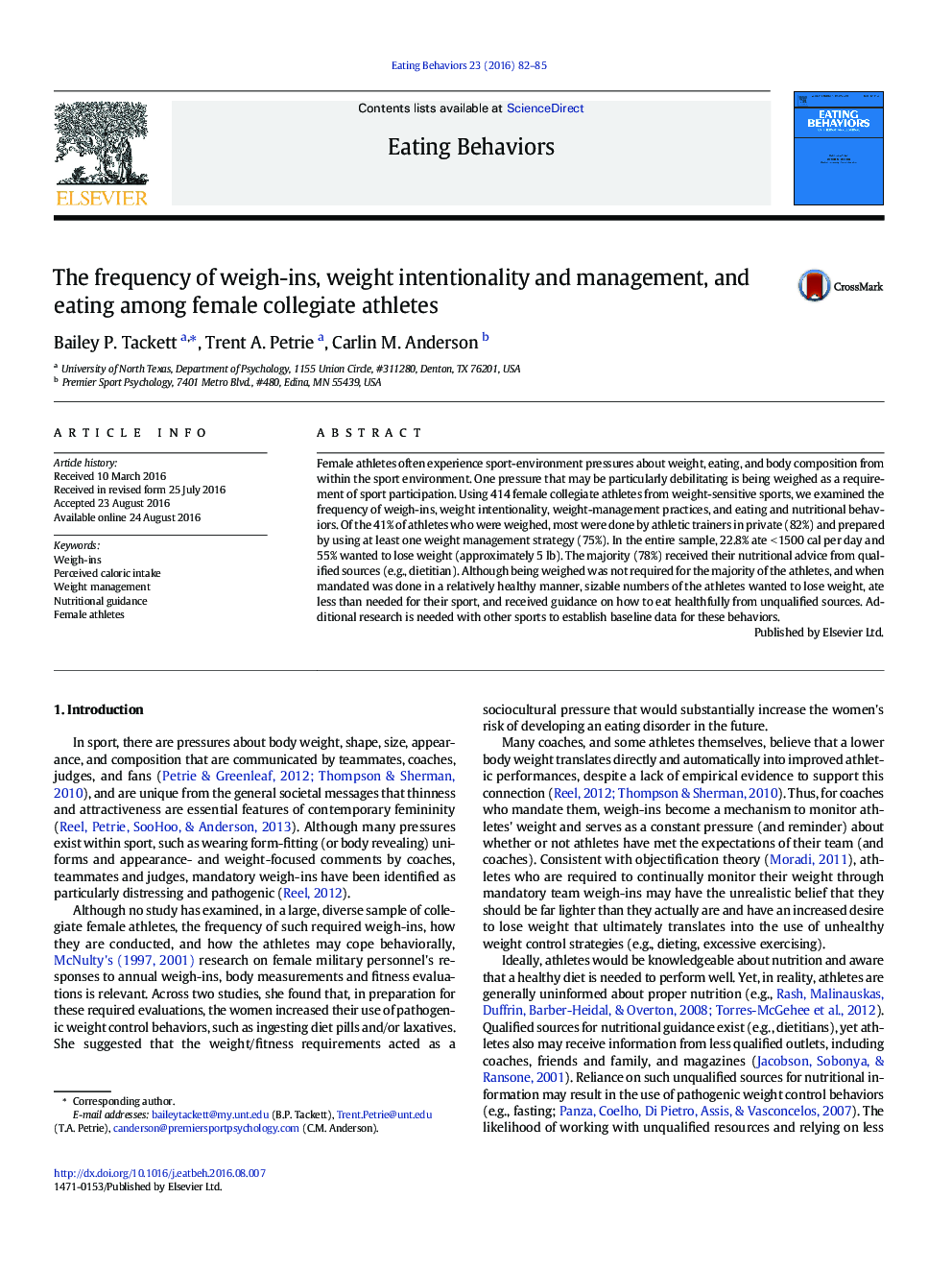| Article ID | Journal | Published Year | Pages | File Type |
|---|---|---|---|---|
| 906178 | Eating Behaviors | 2016 | 4 Pages |
•A substantial minority of female collegiate athletes were required to be weighed as part of their sport participation.•Weigh-ins were being conducted in a recommended fashion (e.g., in private, by athletic trainers) and most athletes were provided with nutritional guidance from qualified professional sources.•Most athletes reported using weight management strategies to prepare for weigh-ins and reported wanting to lose weight.
Female athletes often experience sport-environment pressures about weight, eating, and body composition from within the sport environment. One pressure that may be particularly debilitating is being weighed as a requirement of sport participation. Using 414 female collegiate athletes from weight-sensitive sports, we examined the frequency of weigh-ins, weight intentionality, weight-management practices, and eating and nutritional behaviors. Of the 41% of athletes who were weighed, most were done by athletic trainers in private (82%) and prepared by using at least one weight management strategy (75%). In the entire sample, 22.8% ate < 1500 cal per day and 55% wanted to lose weight (approximately 5 lb). The majority (78%) received their nutritional advice from qualified sources (e.g., dietitian). Although being weighed was not required for the majority of the athletes, and when mandated was done in a relatively healthy manner, sizable numbers of the athletes wanted to lose weight, ate less than needed for their sport, and received guidance on how to eat healthfully from unqualified sources. Additional research is needed with other sports to establish baseline data for these behaviors.
